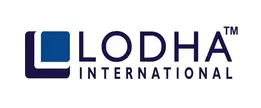Get in touch! +91 9687731331 | +91 9687631331 | info@lodhapharma.com
Advancements in Tablet Press Machine Technology
Working Principle of Tablet Press Machines
Tablet quality plays a crucial role in pharmaceuticals, nutraceuticals, food, and various industrial sectors. Ensuring consistent tablet quality requires precision manufacturing processes and reliable equipment. One of the key components in tablet production is the tablet press machine, which exerts pressure to compress powdered materials into solid tablets. In recent years, advancements in tablet press machine technology have revolutionized the production process, leading to improved tablet quality and increased efficiency.
Working Principle of Tablet Press Machines
Tablet press machines function by applying mechanical force to compress powdered ingredients into tablets. The process involves several stages, including feeding, compression, and ejection. A tablet press machine consists of a hopper to hold the powder, a feed mechanism, a compression mechanism, and a dying system that shapes the tablets. The main force is applied through upper and lower punches to create tablets of consistent size, shape, and weight.
Different Types of Tablet Press Machines
There are various types of tablet press machines available, including single-punch presses and rotary presses. Single-punch presses are suitable for small-scale production and research purposes. Rotary presses, on the other hand, are designed for high-volume production and offer higher output rates. Rotary presses can be further categorized as single-sided or double-sided, depending on the number of punches and dies.
Factors Affecting Tablet Quality
Several factors can influence the quality of tablets produced by tablet press machines. These include the formulation of the tablet, the properties of the powder, the design of the tablet press machine, and the operating parameters. Factors such as tablet hardness, friability, disintegration time, and uniformity of weight are critical indicators of tablet quality.
Introduction to Advanced Tablet Press Machines
Advanced tablet press machines incorporate cutting-edge technology to enhance tablet production. These machines feature improved automation, precision control systems, and advanced monitoring capabilities. They offer higher efficiency, increased production rates, and improved tablet uniformity.
Features and Benefits of Advanced Machines
Advanced tablet press machines come with a range of features that contribute to improved tablet quality. These include advanced control systems for accurate dosing and compression, real-time monitoring of tablet parameters, automatic rejection of defective tablets, and user-friendly interfaces for easy operation and maintenance.
The benefits of using advanced tablet press machines are significant. First and foremost, they enhance the overall quality of tablets by ensuring consistent weight, thickness, hardness, and dissolution properties. This leads to improved patient safety and efficacy of pharmaceutical products. Additionally, advanced machines reduce the likelihood of defects such as capping, lamination, and sticking, resulting in higher yields and cost savings for manufacturers.
Impact on Tablet Quality and Production
The integration of advanced technology in tablet press machines has a profound impact on tablet quality and production efficiency. With precise control over compression force and tablet parameters, manufacturers can achieve uniform tablet hardness, accurate dosing, and consistent dissolution profiles. This not only meets regulatory requirements but also enhances the patient experience and ensures the effectiveness of the medication.
Furthermore, advanced machines enable higher production rates and reduced downtime. The automation features to streamline the manufacturing process, minimizing human error and increasing productivity. Real-time monitoring systems allow for immediate detection of deviations, enabling prompt adjustments and minimizing waste. These advancements ultimately contribute to improved overall production efficiency and cost-effectiveness.
How Advanced Machines Address These Challenges?
Advanced tablet press machines are designed to address the common challenges in tablet production. They incorporate innovative features and technologies that mitigate the risks associated with formulation variations and inconsistent powder flow. Advanced control systems allow for precise adjustment of compression force and dwell time, ensuring uniform tablet density and hardness.
To combat tooling wear, advanced machines often feature automatic lubrication systems and advanced materials for punch heads and dies, prolonging the lifespan of the tooling components. Additionally, advanced machines are equipped with monitoring systems that detect environmental factors such as humidity and temperature, allowing for real-time adjustments to maintain tablet quality.
Furthermore, advanced machines employ anti-sticking measures such as specialized surface coatings, improved punch design, and effective dust extraction systems. These measures minimize the occurrence of sticking and picking, reducing production interruptions and ensuring smooth tablet ejection.

